|
|
TALISMANS | HORARY | READINGS | COURSES | BOOKS | CDs | SOFTWARE | PAYMENT | CONTACT | SEARCH |

|
| Christopher Warnock, Esq. |
| HOME |
|
|
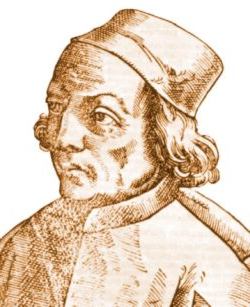
|
| Marsilio Ficino |
Ficino and Astrological Magic
Ficino's Works
Ficino's Horoscope
|
|
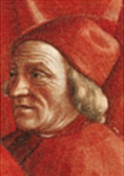
|
Ficino's precocious talent was recognized by Cosimo de Medici, the leading citizen of Florence, who selected Ficino as a boy to lead the Florentine Platonic Academy. Cosimo encouraged Ficino to study Greek and then to provide the first Latin translations of On the Divine Wisdom and the Creation of the World, part of the Corpus Hermeticum attributed to Hermes Trismegistus, and then the first Latin translation of the whole of Plato's works. Cosimo's son Piero and grandson Lorenzo continued to encourage and support Ficino.
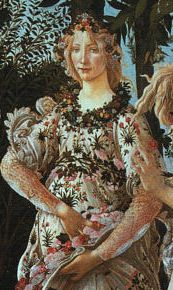
|
|
Ficino also had a great interest in music, translating the The Hymns of Orpheus and gaining renown as a musician. Here is a link to Angela Voss' interesting essays: Music, Astrology and Magic: the astrological music therapy of Marsilio Ficino and his role as a Renaissance Magusí, 'The Music of the Spheres: Ficino and Renaissance harmonia and The Astrology of Marsilio Ficino, Divination or Science?.
Very beautiful and useful music entitled Secrets of the Heavens, based on Ficino's writings can be obtained from River Run Records. This combines a recording of the Hymns of Orpheus to the seven planets with readings from Ficino. There are also three pdf downloads on this page including the texts of the Orphic Hymns and more essays by Angela Voss on Ficino and his astrological music magic.
One of the most striking features of Ficino's work was his insistence that there was no contradiction between true philosophy and revelation and his belief in the inherent unity of classical and Christian teaching. As well as translating and commenting on Platonic and Hermetic works, he wrote On Christian Religion and translated the works attributed to Dionysius the Aeropagite. In Platonic Theology or On the Immortality of Souls Ficino traces the common classical and Christian ideas concerning the soul and shows their true unity.
|
|
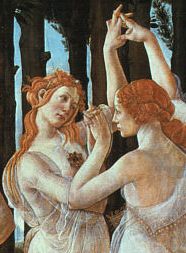
|
While careful to focus on benefic talismans, particularly for improving health, it is clear that many of the talismans that Ficino discusses have their source in Picatrix, a medieval book of Arabic astral magic. Unlike Pico della Mirandolla or Giordano Bruno, however, Ficino's cautious approach to astrological magic allowed him to escape any serious consequences from the Inquisition.
Two, more detailed essays, Marsilio Ficino: Magic, Astrology & the Planetary Hours and Ficino: Astrological Magic Theory, provide more information on the theory and philosophy behind Ficino's use of astrology and magic. Angela Voss' essay, The Astrology of Marsilio Ficino: Divination or Science? is quite illuminating as well.
In addition, Ficino's Venus Talisman Example explains how an actual talisman was made using the techniques of Renaissance electional astrology and Ficino's instructions in De vita coelitus comparanda.
Another fascinating work, but out of print translation of Ficino's work is his Commentary on Plato's Symposium translated by Sears Jayne. Since Ficino asserts that love is the basis of magic, and indeed, the key link that ensures the unity of the Cosmos, his Commentary on Plato's renowned work on love is of great interest.
An easily accessible work by Ficino is the online translation with commentary by Michael Allen of Ficino's Nuptial Arithmetic, a fascinating study of geometry, Pythagorean mathematics and astrology.
While I am unsure of the copyright status of this particular use, this translation of Ficino's De Sole "Of the Sun" by Geoffrey Cornelius, Darby Costello, Graeme Tobyn, Angela Voss & Vernon Wellsis is excellent and Ficino's account of the spiritual nature of the Sun is typical of his lucid and mystical prose.
In print are the attractive, hard cover translations of Ficino's Platonic Theology I, Platonic Theology II, Platonic Theology III, Platonic Theology IV, Platonic Theology V and Platonic Theology VI. Platonic Theology provides a fascinating look at Ficino's thought regarding the compatibility of classical philosophy and Christianity, particularly with regard to the Soul.
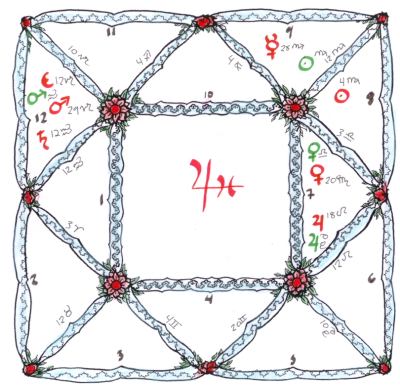
|
|
Regiomontanus Houses
1:42 p.m. (-0.45) (LMT) October 19, 1433 Florence, Italy, 43 N 46 011 E 15 |
Ficino says of his birthchart,
"Saturn seems to have impressed the seal of melancholy on me from the beginning; set, as he is, almost in the midst of my ascendant Aquarius, he is influenced by Mars, also in Aquarius, and the Moon in Capricorn. He is in square aspect to the Sun and Mercury in Scorpio, which occupy the ninth house. But Venus in Libra and Jupiter in Cancer have, perhaps, offered some resistance to this melancholy nature."
Letter of Ficino to Giovanni Cavalacanti, quoted in Marsilio Ficino, Three Books on Life, [Florence 1489], Kaske & Clarke, trans., Tempe, AZ: Medieval and Renaissance Texts & Studies, 1989, p. 20.
Note that Ficino's description of his natal chart differs somewhat from that produced by modern computer software. In the chart above the house and planet positions produced by SolarFire 4 are shown in red and where Ficino differs his placements are shown in green.
Giovanni Corsi, in his 1506 biography of Ficino says that,
"In stature he was very short, of slender build, and somewhat hunched in both shoulders. He was a little hesitant of speech and stuttered, but only in pronouncing the letter 's'; yet in his speech and appearance he was not without grace. His legs and arms, and particularly his hands, were rather long. His face was drawn forward and presented a mild and pleasing aspect; his complexion was ruddy. His hair was golden and curly and stood up above his forehead. His bodily constitution contained excessive blood which was mixed with a thin subtle red bile. His health was not at all settled, for he suffered very much from a weakness of the stomach, and although he always appeared cheerful and festive in company, yet it was thought that he sat long in solitude and became as if numb with melancholy."
If you would like to learn more about traditional astrology and Ficino's astrological magic you may find my Astrological Magic Full Course or my on-line discussion group, Spiritus Mundi to be of interest.

HOME
Please Contact me with any Questions & Comments
Specializing in Horary Astrology, Electional Astrology Astrological Magic and Astrological Talismans.
Copyright 2000-2002, Christopher Warnock, All Rights Reserved.



